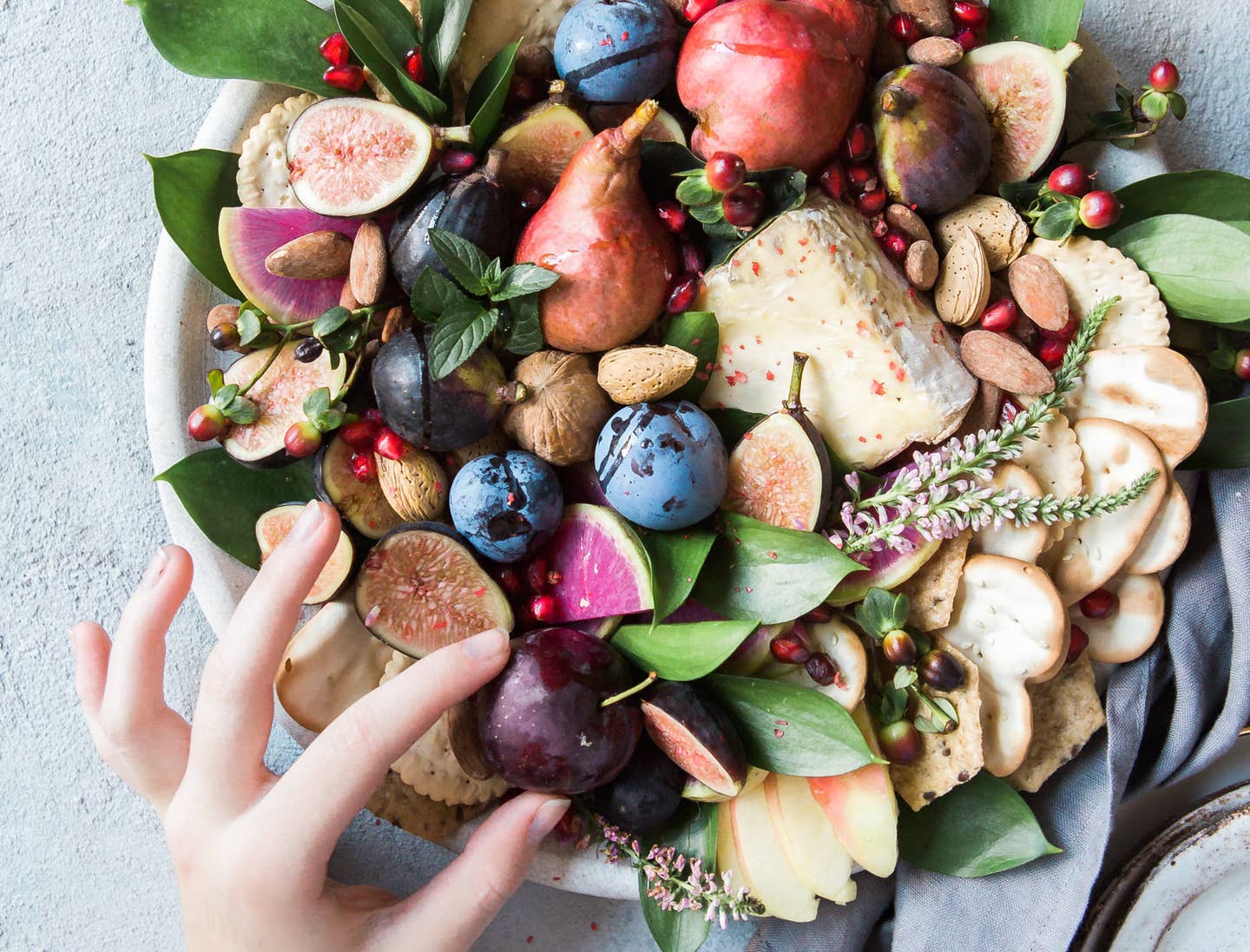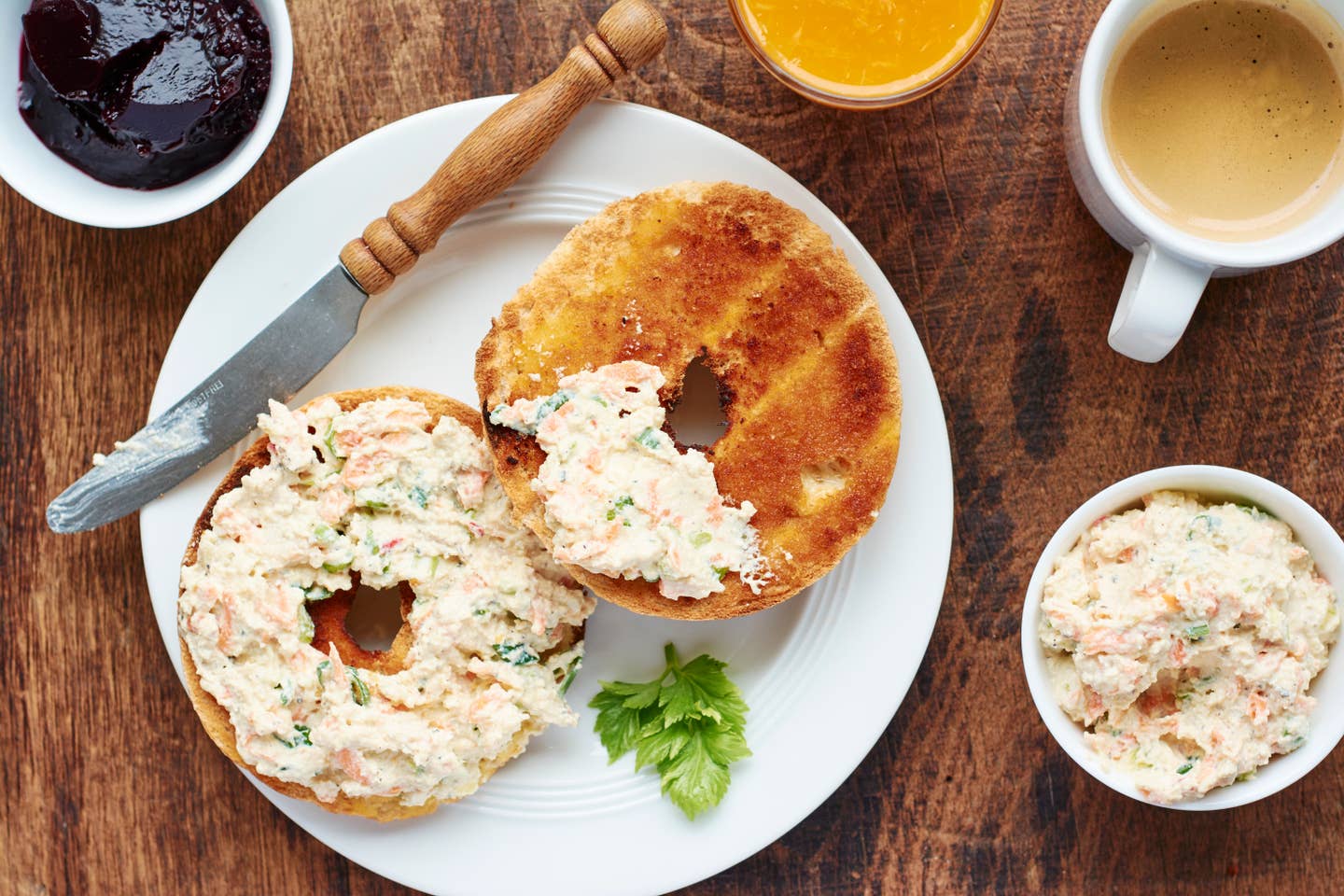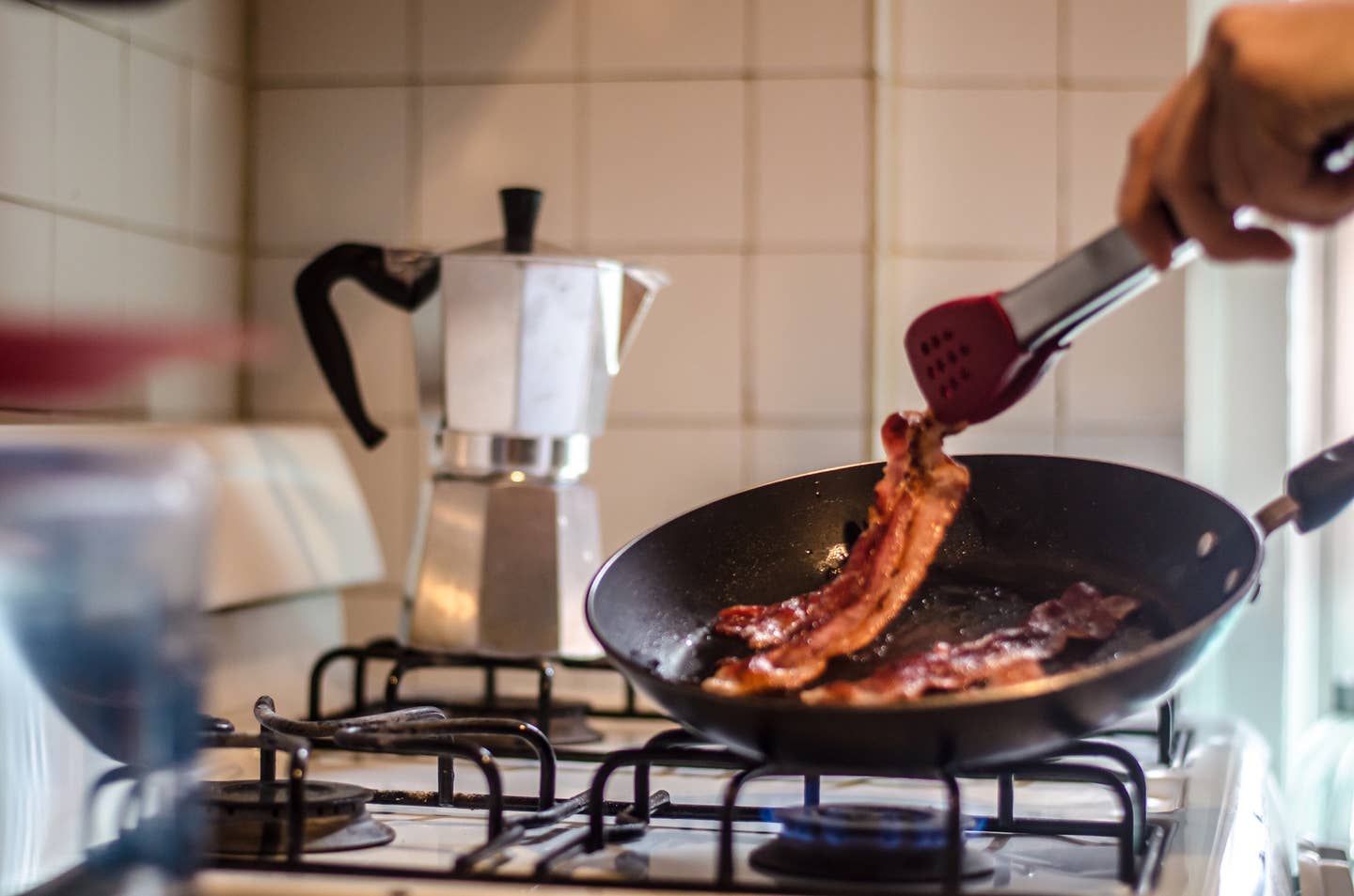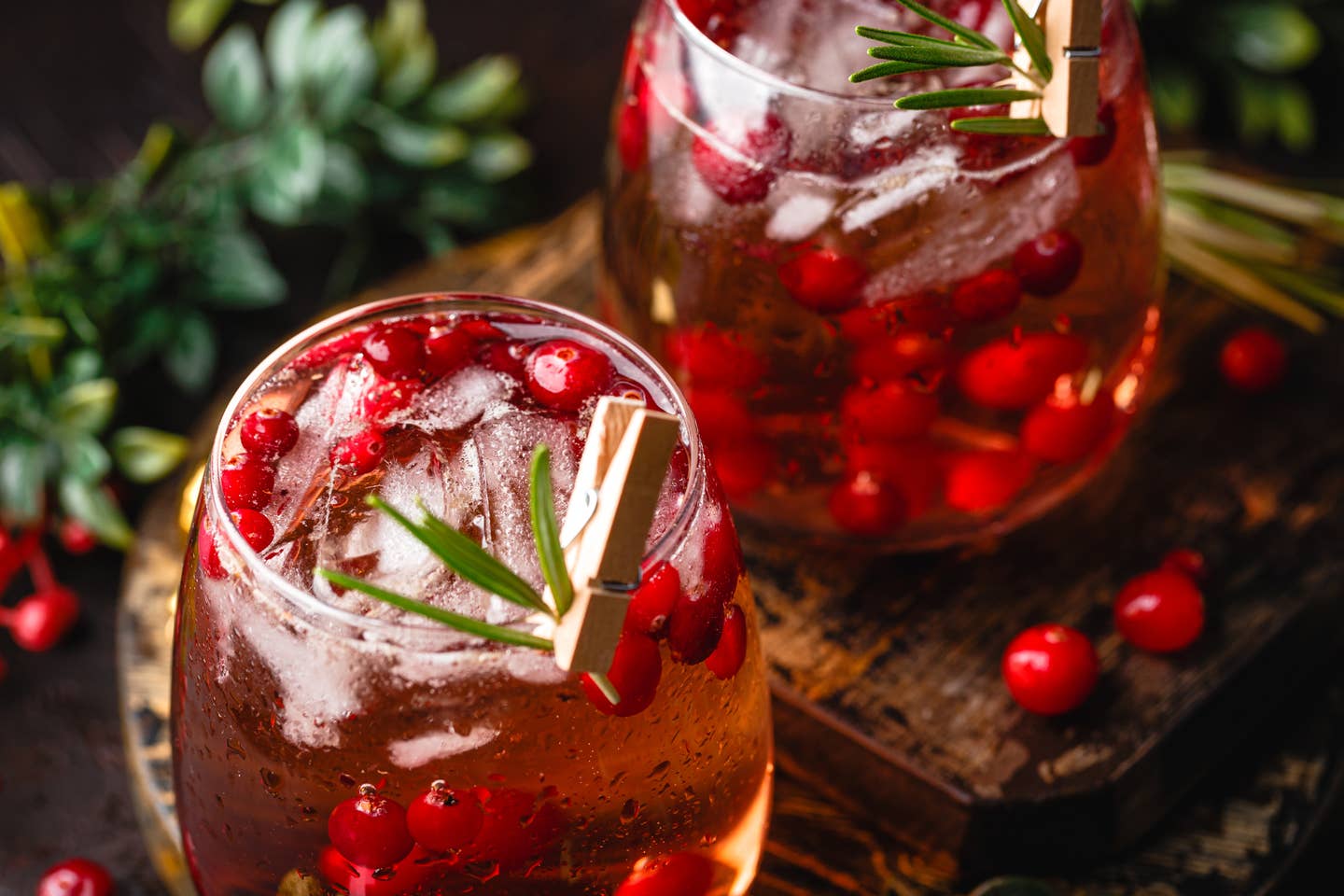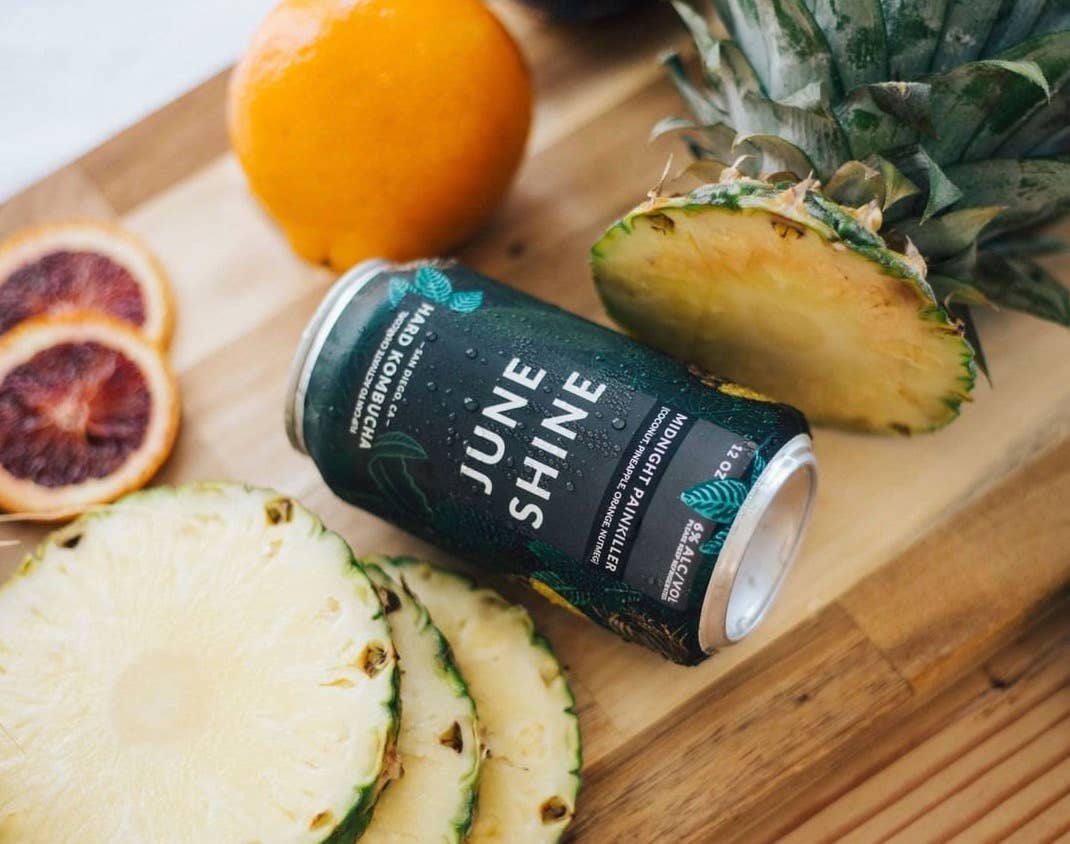
Move Over Hard Seltzer, Hard Kombucha is a Better-For-You Adult Beverage
By this point, you’ve surely heard of “hard seltzer.” It seems like this summer there was no escaping backyard BBQs and pool-side gatherings with people yelling out “ain’t no laws when you’re drinkin' Claws,” a reference to a leading hard seltzer company, White Claw.
While hard seltzer brands like White Claw, Truly and Bon & Viv, have certainly become the poster children for a “healthier” drink option, there is a lesser-known adult beverage right on hard seltzer’s tail that packs even more health-conscious heat: Hard kombucha. And, hard kombucha companies, like California-based JuneShine, are taking on the White Claws of the world with their own, slim 100-calorie low-carb and low-sugar 12-ounce can.
While you think of a clever catchphrase for JuneShine that rivals White Claw’s, (“ain’t no time when you’re drinkin’ Shine”...?), read on to learn about both hard seltzer and hard kombucha so you can make an informed decision next time you stock up on a buzz-inducing fizzy drink.
What is hard kombucha?
You might be familiar with kombucha, the fermented tea probiotic-packed beverage, but newer to your repertoire may be “hard kombucha.” The “hard” simply means that it carries a higher alcohol content, making it a delicious drink that rivals beer, wine, cocktails...and yes, even hard seltzer. While kombucha naturally has a small amount of alcohol created from a fermentation process, hard kombucha typically goes through a secondary fermentation to convert sugar into more alcohol. Hard kombuchas tend to have alcohol by volume (ABV) of anywhere between 3-8%. Hard kombuchas often come in a variety of fruity flavors.
What is hard seltzer?
While you might think hard seltzer is vodka, soda water and flavoring, there is no liquor in hard seltzers; the alcohol comes from fermented cane sugar, which is similar to how beer is made, except carbonated water and flavors are added. Hard seltzers often come in a variety of flavors and are often marketed as a low calorie and low carbohydrates option. Many make a point to clock in at 100 calories or less and contain about 5% ABV per 12-ounce can.
The health factor: Hard seltzer vs. hard kombucha
While hard seltzers are often classified as a “healthier” drink option over beer, wine or a cocktail, that might be a bit of a stretch. Sure, they do tend to have fewer calories—but health is so much more than just calorie count. Nonetheless, for those interested in watching their calorie intake, having calorie transparency is a good thing. Hard seltzers are also low in carbs, a bonus for the keto-ers. They are also gluten-free, making them preferable to beer for the gluten-sensitive. We should also note that many seltzers use “natural flavors,” but many don’t disclose what those flavors actually are. This doesn't automatically mean they are masking a “bad” ingredient...we just can’t know what’s in their flavoring.
Now, for the hard kombucha. Most hard kombuchas come in at anywhere from 100-160 calories, with some taking a low-cal approach leading with the promise of 100 calories and low carbs and sugar. One major health benefit of a hard kombucha is the presence of probiotics. “Just like traditional kombucha, hard kombucha is a functional drink that contains billions of probiotics which may benefit your gut health, reduce inflammation, and help digestion,” says Hannah Crum, president and founder of Kombucha Brewers International. Crum adds that many hard kombuchas often add other ingredients like natural fruit flavors, ginger, turmeric and spices. Plus, kombucha, even hard kombucha, is typically green tea or black tea-based which contains antioxidants. One other component worth noting is that hard kombucha brands tend to be extremely environmentally-woke. Many donate to 1% For The Planet and have their own sustainability programs.
Ready to retract your Claws? Try these hard ‘bucha brands
Now that you’re up to speed, it’s time for you to put hard kombucha to the taste test. You might also be compelled to prove to stead-fast seltzer lovers that hard kombucha can win on health and taste. So, here are some stellar hard ‘bucha brands you should consider serving up at your next shindig.
JuneShine: Brewed in San Diego, California and available in various states. Easy online ordering and quick shipping. A+ on taste, attractive can art, plus a diverse line-up of flavors makes JuneShine a true crowd-pleaser. (Note, JuneShine does use honey, so if adhering to a strict vegan diet, you will want to look to one of the options below.)
- Why we love: New slim can 100-calorie line made with 4.2% ABV. Just the right amount of light.
- The flavor we are sipping: Pineapple Orange
- Dive in: juneshine.com
KYLA Hard Kombucha: Brewed in Hood River, Oregon and available in many retailers nationwide, plus an option to order online. 12-ounce slim cans are 100 calories with 1 carb, 1 gram of sugar, and a 4.5% ABV.
- Why we love: Always vegan, low-cal, unique flavors, and adaptogenic ingredients.
- The flavor we are sipping: Pink Grapefruit
- Dive in: www.kylakombucha.com
Boochcraft: Brewed in San Diego, California. Available in eight states and growing. Full-bodied flavors and a get-you-buzzed-faster 7% ABV per can and bottle. (Worth the higher calorie count, about 160 per drink.)
- Why we love: Full-bodied taste, always 100% vegan, and a solid sustainability program.
- The flavor we are sipping: Limited-edition, Passionfruit Blood Orange
- Dive in: boochcraft.com
Here’s one last parting tip: If we’ve piqued your interest and now you’re ready to geek-out on all-things-kombucha, hard and otherwise, check out Virtual KombuchaKon, September 17-18 2020. They’ll have kombucha business leaders speaking on various panels plus sessions dedicated to the business of hard kombucha.
More From The Beet
